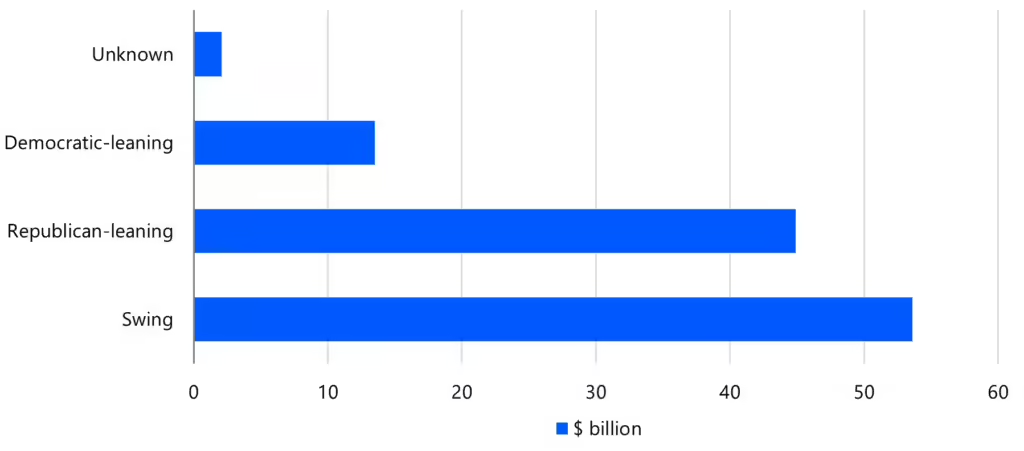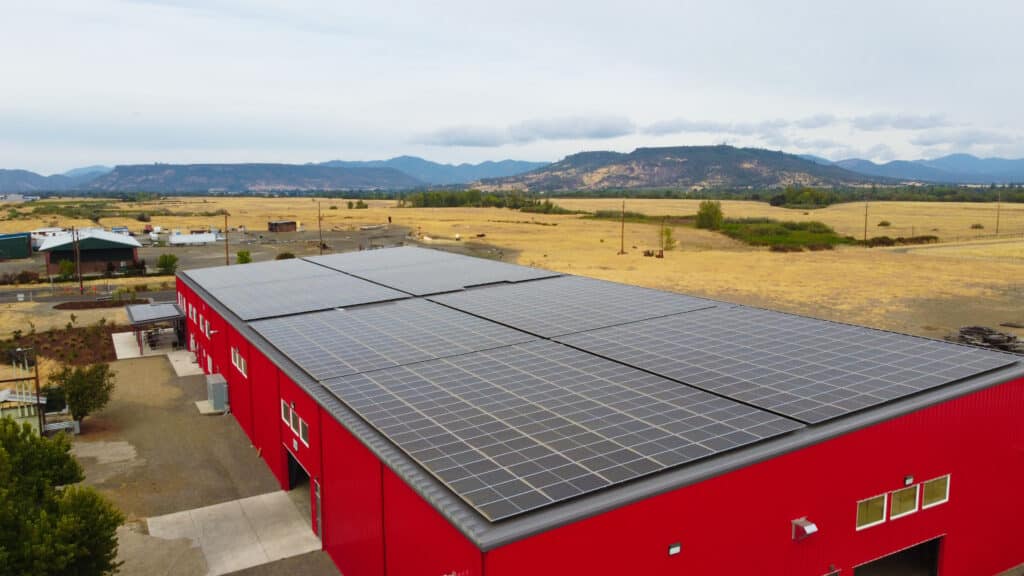Following the recent U.S. elections, the 2025 political landscape will bring new priorities to the legislative agenda, with Republicans now holding both Congress and the White House. This shift raises questions about the future of the Inflation Reduction Act (IRA) and its role in supporting the solar industry. After attending a webinar hosted by Roth MKM with insights from Abby Hopper, CEO of the Solar Energy Industries Association (SEIA), we wanted to share the key takeaways for solar stakeholders as we look to the next chapter of renewable energy policy. In this post, we’ll cover as much as we can, given what’s currently known, about the future of the Inflation Reduction Act, as of November 2024.
Key Considerations
1. Minimal Appetite for Full Repeal
Abby Hopper noted that while Republicans may make changes to the IRA, a full repeal seems unlikely. The 45X Advanced Manufacturing Production Credit and the Investment Tax Credit (ITC) / Production Tax Credit (PTC) remain popular for their economic benefits, even in Republican districts. More than two-thirds of the 45X funds have been invested in Republican-leaning districts.1,2
That consideration is encapsulated by a letter signed by 18 House Republicans, which was sent to House Speaker Mike Johnson in early August with the request not to repeal the IRA credits. In it, they wrote, “Prematurely repealing energy tax credits, particularly those which were used to justify investments that already broke ground, would undermine private investments and stop development that is already ongoing. A full repeal would create a worst-case scenario where we would have spent billions of taxpayer dollars and received next to nothing in return.” This bipartisan recognition of the IRA’s impact on job creation and economic growth suggests that many of these incentives will continue to support renewable energy expansion.

2. Domestic Content Provisions Likely Secure
One area likely to remain intact is the IRA’s emphasis on domestic manufacturing. With Republicans favoring “Made in America” policies, this component of the IRA aligns with goals to bring manufacturing jobs back to the U.S. These provisions should help secure the supply chain for solar components and maintain growth in U.S. manufacturing.4
3. Possible Changes in Early 2025
Under the new Congress, changes to the IRA could come as early as the first half of 2025. GOP leaders have indicated they may fast-track modifications through a reconciliation bill. Given the unified government, adjustments to certain tax credits or incentives could pass more quickly, though Abby emphasized that major revisions are still unlikely.
4. Anticipated Pause on Guidelines and Rulemaking
The new administration may implement a temporary pause on IRA-related guidelines and rulemaking as it reconsiders the Act’s specifics. However, Abby clarified that final rules will remain in place. This pause will give the industry time to adjust, but it may also introduce a period of regulatory uncertainty.
5. Potential Challenges from Trade Policy and Federal Appointments
The solar industry could face challenges from new trade policies or changes in federal agency leadership. With potential shifts at the Department of Energy (DOE) and the Federal Energy Regulatory Commission (FERC), along with renewed scrutiny on imports, solar components may see fluctuating costs and availability. Trade policies will be important to watch as they could directly affect the U.S. solar market’s stability.
Speaker Mike Johnson’s Approach: A “Scalpel, Not a Sledgehammer”
U.S. House Speaker Mike Johnson recently emphasized a targeted approach to revising the IRA. Rather than dismantling the Act, Johnson acknowledged the benefits of certain tax credits and incentives that have supported economic growth. This approach is also backed by Republican members who sent a letter to the Speaker, asking to preserve parts of the IRA that are generating jobs and supporting businesses in their districts.
At True South Solar, we’re dedicated to keeping our clients informed on policy changes and the benefits available for solar projects. If you’re interested in learning more about how these updates could impact your solar options, reach out to us.
Stay Informed with True South Solar
As Southern Oregon’s local solar experts, we’re here to guide you through changing policies and ensure you have access to the latest incentives and industry insights. For more on choosing the right solar installer, download our Top Ten Questions to Ask Your Solar Installer PDF.
Sources
- How Trump’s second term could derail the clean energy transition – accessed 11/12/24
- See how the Inflation Reduction Act is affecting your community – accessed 11/12/24
- Potential risks to the Inflation Reduction Act under a second Trump administration – Rabobank, accessed 11/12/24
- What Trump’s reelection could mean for the IRA, offshore wind – accessed 11/12/24

